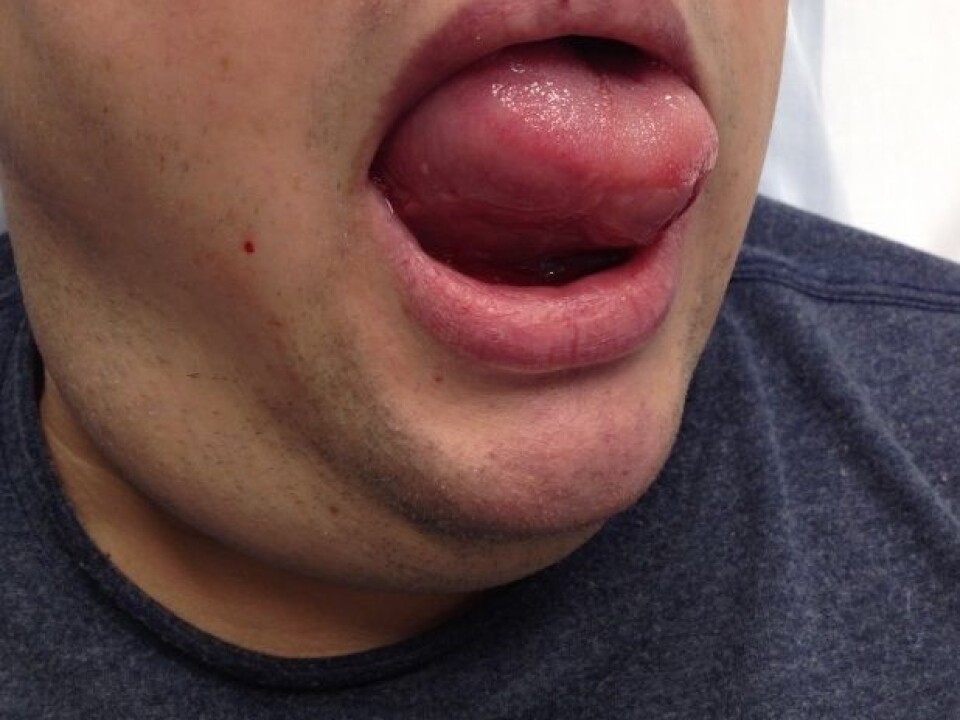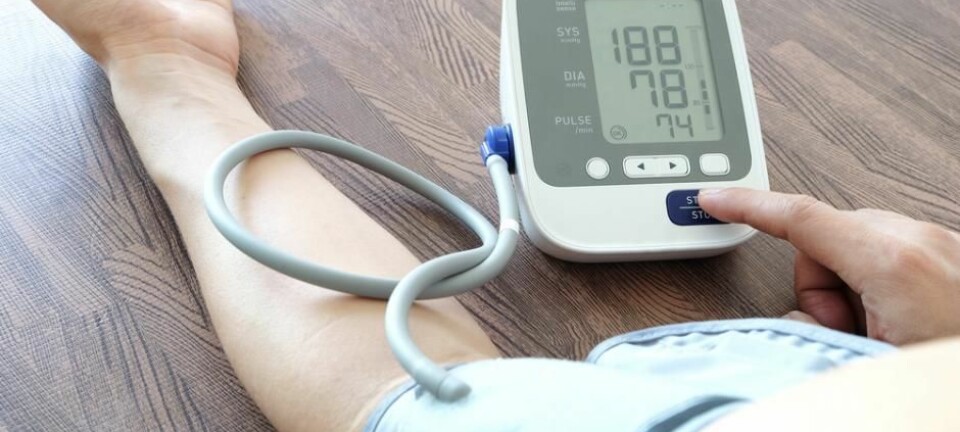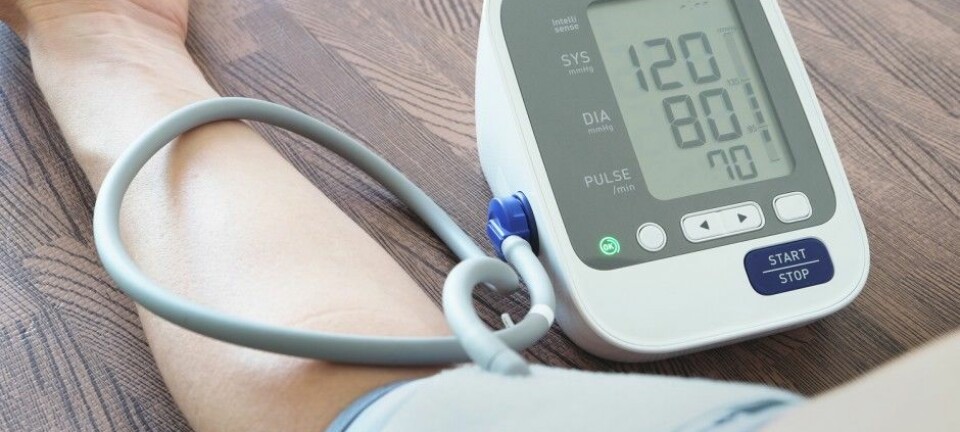
Personalised prescriptions according to your genetics
New genetic risk factor identified for a rare but severe reaction to a poplar type of blood pressure medication.
Approximately half a million Danes are currently prescribed some type of ACE inhibitor to reduce their blood pressure. Worldwide, that number is around 40 million.
This group of drugs, known as angiotensin converting enzyme-inhibitors, is commonly prescribed to patients with high blood pressure or kidney problems due to diabetes, but in rare cases, it can cause some rather nasty side effects.
Of particular concern is a severe swelling of the head and neck area, which can become dangerous, even deadly in rare cases when situated in the mouth or windpipe. And even though these side effects are documented, they are still relatively unknown, even among doctors.
New research from Rigshospitalet and Odense University Hospital in Denmark in collaboration with Uppsala University Hospital in Sweden, has identified a new genetic mutation that increases the risk of this rare, but dangerous type of reaction.

Knowing what factors contribute to these types of reactions could help doctors to prescribe the most suitable medication, according to each patient’s unique genetic makeup, and reduce the risk of such severe reactions.
Read More: Genetic profiling of cancer tumours opens up new treatment options
A rare but serious condition
Understanding these risk factors is particularly important, as in extreme cases the swelling can be deadly. Eighteen people are reported to have died from it between 1979 and 2014, according to previous research in the US.
And this is probably an underestimate, since there were 136 deaths attributed to swellings in the airways during that same period, and not all of the patient records contained information on which drugs the patients were taking.
In severe cases, the patient’s throat can close, putting them at risk of suffocation and requiring intensive care on a ventilator until the swelling has subsided.
Unfortunately, there is no specific treatment for this particular type of swelling. And even though in most cases it usually subsides within 12-72 hours it can nonetheless be a very uncomfortable time. The patient will need to be admitted to a hospital for observation for potential airway problems, and eating, speaking, and drinking, can also be difficult.
Do not stop taking medication without medical advice
Even though it might seem like a frightening reaction, it is important to remember, that it is still rare and swelling only affects about 1 out of 200 patients prescribed this particular type of medication.
So, it is extremely important that patients do not stop taking the medication prescribed by the doctor without seeking medical advice first.
If the medication is stopped without proper replacement and assessment by a doctor, it can increase the risk of heart disease, stroke and other severe diseases.
Read More: Human organs-on-chips may one day replace animal testing
Analysed data from 500 patients
In our research (which is not yet published in a scientific journal), we analysed genetic material from more than 500 patients who had experienced a swelling episode. We wanted to see if there was a genetic explanation as to why some patients treated with this type of medication experience swelling.
We identified one genetic change that could be associated with the reaction, and appeared to double the risk of a severe swelling reaction compared to people who did not carry this mutation.
In a previous study, we also found that elderly women are almost twice as likely to experience swellings as men, while patients with type 2 diabetes seem to be less likely to experience swellings.
What to look out for
The first swelling episode usually occurs within the first days or weeks after starting the treatment. However, it can occur suddenly but with significant delay, even after patients have been taking the medication for many years.
When that happens the doctor may not be aware of a connection between the drug and the swellings.
From our own, unpublished, data we know that more than 14 percent continue to take the medication even after they have been admitted to a hospital due to severe swellings.
Another complication is that the swelling looks much like a regular allergic reaction to food or insects. So it can be tricky to pinpoint the blood pressure medicine as the cause. And while research scientists know that this reaction cannot be treated with anti-allergic medication, more than 90 per cent of patients are nonetheless treated with such medication during hospital admissions.
Read More: High blood pressure? Reducing salt intake alone will not solve it
Personalised prescriptions according to your genetics
There is still work to be done. Previous research has identified other genes of importance to this kind of swelling, but larger studies including all of these mutations are needed to ensure that all of these findings apply to patients of different ethnicity, and not just the groups that have been studied so far (here, here, and here).
We hope that in future, doctors will take this kind of research into account and prescribe drugs to lower blood pressure according to each patient’s genetic fingerprint.
This should minimize the risk of developing dangerous swellings and other side effects.
In the meantime, patients who are taking medication with names like ramipril, enalapril, lisinopril, captopril, trandolapril, or perindolapril, and who have had swellings of the face, mouth, or throat, should seek medical advice from the doctor who prescribed the medication in the first place, in order to establish a possible association between tablets and swellings.
---------------
Read this article in Danish at ForskerZonen, part of Videnskab.dk













